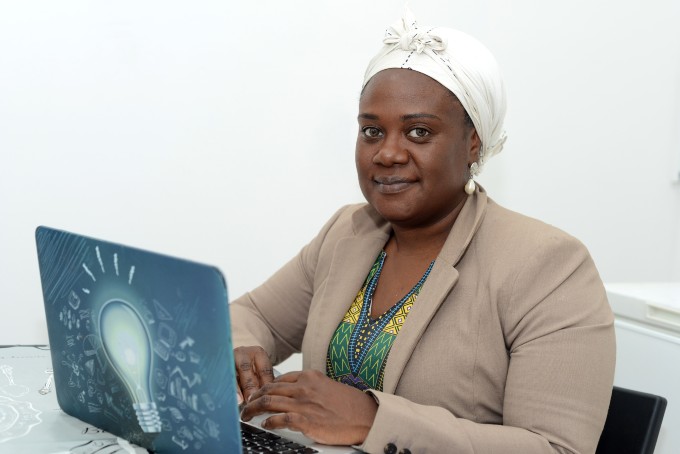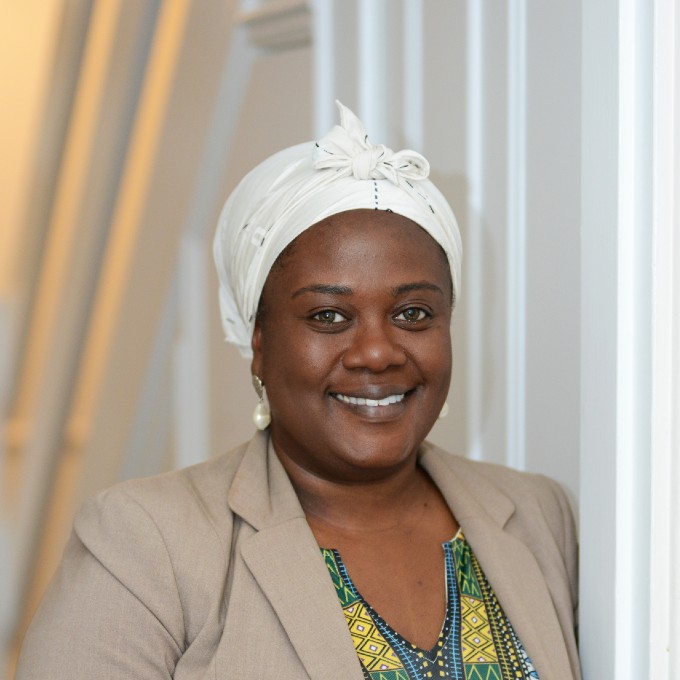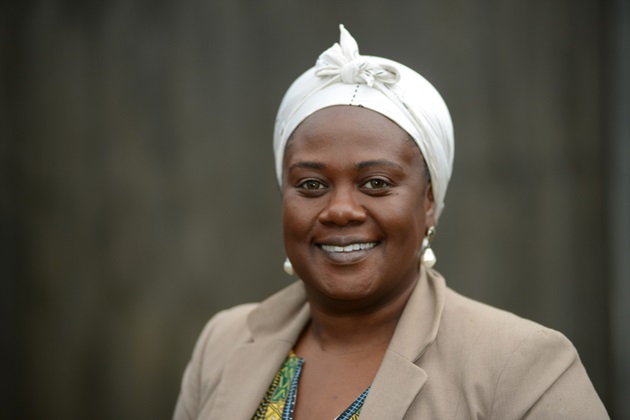Agency nurse Neomi Bennett BEM has launched a grassroots movement to support black nurses who experience racial discrimination at work
“It started back in March when the first wave of the pandemic began,” says Neomi. “I noticed that I was always sent to wards with COVID-19 positive patients and wasn’t rotated around the hot areas like other agency nurses were. At that point there was a shortage of PPE, and there was an occasion when I was told that I could only have a surgical mask, not an FFP3 respirator that provides better protection. I thought it was because I wasn’t a permanent member of staff, but later found out that the other, white, agency nurse on the ward was given the right equipment."
I love my job and would never walk away from patients in need... but I was so worried afterwards
“I love my job and would never walk away from patients in need, so I continued my shift, regardless of the life-threatening risk to my health. But I was so worried afterwards. I self-isolated for two weeks, not able to earn, because I couldn’t face the risk of potentially passing on COVID-19 to my patients, family, friends or nursing colleagues.”
Neomi found that she wasn’t alone. After talking about her experiences with other black nurses, she learned that they too felt that they were being disproportionately asked to work on COVID-19 wards and weren’t always given the protection they needed. The conversations she was having were informal at first – small groups of black nurses coming together via Zoom to share their experiences. But word quickly began to spread, and the need for support grew. Black nurses began to die at disproportionately high levels.
Traumatised and petrified
“I couldn’t just sit back and do nothing,” says Neomi. “We were inundated by nurses who wanted to join us. They needed a channel to express what they were going through. They were traumatised by their experiences and petrified about what might happen to them.”
The Equality 4 Black Nurses group was born and from June became more formalised, with Zoom meetings held every Tuesday at 9pm and experts volunteering their time and advice. The group now has more than 500 members with input from lawyers who specialise in human rights and race equality and culturally sensitive psychologists. It is run by Neomi and five others via a consultation group.

Following the death of George Floyd and the growth of the Black Lives Matter movement, the focus of the group has shifted to consider issues of racial injustice experienced by nurses more broadly. Neomi has received more than 100 calls from nurses seeking support because they feel they have been discriminated against at work.
“Often, it’s that they feel they’ve been targeted in some way, their treatment hasn’t been fair, or they’re being disciplined more harshly than other colleagues who aren’t black when dealing with issues of either the same or very similar circumstances,” explains Neomi.
“One district nurse we’re supporting was reported for wearing her uniform while going to the supermarket during her break. She was new in post and simply followed the habits of the other white nurses. Yet she was picked out and dismissed. I’m not condoning what she did, but the response was disproportionate. It often seems that black nurses receive a harsher penalty and that’s just not fair.”
Facts not fiction
The statistics corroborate Neomi’s view. The 2019-2020 inclusion data from the Nursing and Midwifery Council shows that black nurses made up 15.3% of new fitness to practice referrals, despite black nurses making up just 8.5% of the total register. Of those concerns raised, 62% of investigations against black nurses resulted in no case to answer.
“The focus of our work now is on supporting black nurses to lodge grievances with their employer when they feel they’re being discriminated against,” says Neomi. “It’s about helping them to articulate what they’ve experienced and highlight systemic racism. We support nurses in a holistic way and consider how they perceive the situation as well as objectively review the available evidence. We then help them to write a testimony and seek legal advice to pinpoint discrimination.”
People need to understand the insidious nature of institutionalised racism
For Neomi, the aims of the group go beyond supporting individual nurses. She’s started to conduct surveys and monitor trends to enable her to influence at a higher level and is working directly with two employers to help educate their investigators.
“People need to understand the insidious nature of institutionalised racism if they’re to properly investigate discrimination cases,” she says. “Black nurses are on the receiving end of both conscious and unconscious bias. In order to be fully understood and fairly treated, I believe all investigators need to have undergone race and equality training.”

Neomi Bennett BEM is a Dragons Den entrepreneur and inventor of the Neo-slip stocking aid. She’s a Queen's honours recipient for services to health care.
Find out more about Equality 4 Black Nurses.
What is the RCN doing?
During the height of the pandemic, we contributed to reviews into the disproportionate impact of COVID-19 on black, Asian and minority ethnic (BAME) communities.
We continue to call on health care employers to:
-
review the allocation of shifts, access to PPE and fit testing for BAME workers
-
update risk assessment processes to include ethnicity in vulnerable and at-risk groups
-
include BAME staff in priority testing
-
confirm that staff will receive full pay during any COVID-19 related absences.
See our full list of employer responsibilities for BAME staff.
Between June and September, we held a series of online events to start the conversation about the nature of race, racism and structural discrimination in the nursing profession. A number of actions were identified, which we’ll follow up in the coming months.
In addition, we’ve recently launched a series of podcasts called Nursing Whilst Black giving nursing staff from BAME backgrounds a channel through which to share their thoughts, reflections and insights on their lived experiences of working in health care. They provide a platform for nurses to raise awareness of critical issues and suggest solutions for how organisations and systems can change to improve outcomes for all staff.
The RCN Cultural Ambassador Programme sees volunteers from BAME backgrounds in participating organisations receive specific training to enable them to sit as part of investigation teams. Their role is to identify and explore issues of culture and behaviour where staff may be being treated less favourably because of their race. Find out more and get involved.
If a member feels they’re being discriminated against at work, we would advise them to call RCN Direct for advice on 0345 772 6100 in the first instance.
What does the NMC say?
In response to Neomi’s work and the statistics which show a disproportionate number of black nurses are referred to the NMC, its Chief Executive and Registrar Andrea Sutcliffe CBE said: “We value the diversity of the nursing and midwifery professionals who make up our register and take very seriously our responsibility to ensure our processes are fair and accessible for everyone.
“However, as members of Equality 4 Black Nurses have rightly pointed out, discrimination is still an unacceptable part of the everyday experience for many black nurses. And our own research has shown that professionals from black, Asian and minority ethnic backgrounds are more likely to be referred to us by their employers than their white colleagues.
“We’re committed to creating a professional culture that values equality, diversity and inclusion. As part of our work to address any inequality, in October we will publish further research looking at how nurses and midwives from particular groups are affected by all of our processes, including fitness to practise, registration and revalidation.
“Everyone has the right to live their life without fear of discrimination and through this research, we hope to better understand any differences in the way people experience our processes so that where unfairness arises, we can take action and work with employers and our partners to stop it.”








